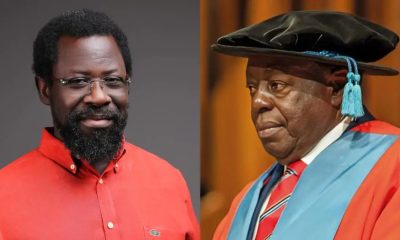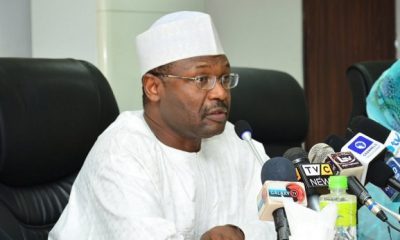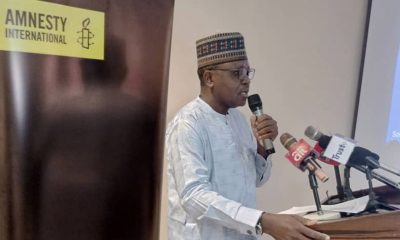International
Protests break out as Maduro declared winner of disputed Venezuela election
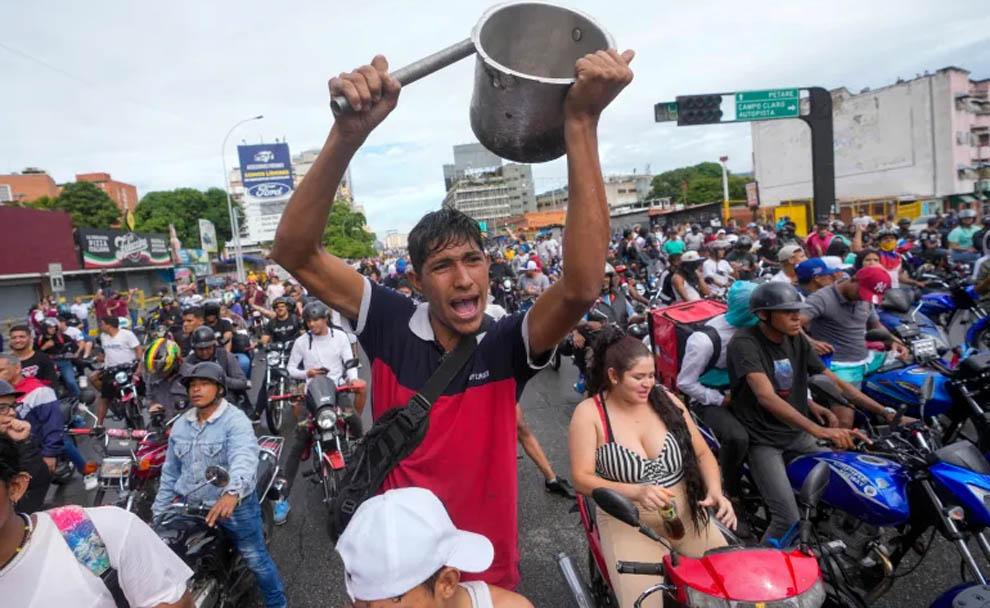
Protests break out as Maduro declared winner of disputed Venezuela election
Venezuelans have taken to the streets after the electoral authority officially declared President Nicolas Maduro the winner of an election that the opposition says was marred by fraud.
Protests have erupted across the country, with demonstrators even toppling a statue of Maduro’s predecessor, Hugo Chavez, in the state of Falcon.
In the Petare area — one of the poorest parts of the capital, Caracas — demonstrators shouted slogans against the president, and some masked young people tore down his campaign posters from lampposts.
Some protesters were also headed towards Miraflores, the presidential palace.
Police were deployed in large numbers across the city, and members of the National Guard were seen to be firing tear gas to disperse demonstrators. There were also reports of “colectivos” — pro-Maduro paramilitary groups — firing at protesters.
“It’s going to fall. It’s going to fall. This government is going fall!” some of the protesters shouted.
Public anger swelled after the National Electoral Council (CNE) on Monday formally confirmed that Maduro had been re-elected by a majority of Venezuelans to another six-year term as president “for the period 2025-2031”.
But the CNE, which is controlled by Maduro loyalists, has not released the tallies from each of the 30,000 polling stations across Venezuela, fuelling political tensions in the South American nation and calls for greater transparency.
Opposition representatives said the counts they collected from campaign representatives at the centres show presidential candidate Edmundo Gonzalez trouncing Maduro.
In a press conference on Monday evening, opposition leader Maria Corina Machado claimed her coalition had more than 70 percent of the votes tallied and catalogued in an online database.
READ ALSO:
- Israel insists on harsh response to Hezbollah
- Israel minister urges NATO to expel Turkey over threat
- Wigwe University Registrar dies in Abuja hospital
“They show we have a president elect, and that person is Edmundo Gonzalez,” Machado said, turning to the presidential candidate, who stood by her side.
The CNE, however, maintained Gonzalez had failed to defeat the president, earning 44 percent of the votes compared with Maduro’s 51 percent.
Speaking in a televised address from Caracas on Monday, Maduro, 61, claimed, without providing evidence, that “an attempt is being made to impose a coup d’etat in Venezuela”.
“We already know this movie, and this time, there will be no kind of weakness,” he added, saying Venezuela’s “law will be respected”.
As Maduro spoke, demonstrators began to gather in Caracas, and some tried to block freeways, including one that connects the capital with a port city that is home to Venezuela’s main international airport.
Opposition leaders also rejected Maduro’s allegations, calling for peaceful protests across the country.
“The Venezuelans and the entire world know what happened,” Gonzalez said in his first remarks since the results were announced.
Later, during the Monday evening press conference, he reiterated his claim to victory while urging supporters to remain calm.
“I speak to you at peace, knowing the truth. And I want to tell all the Venezuelan people that their will expressed yesterday through their vote will be respected. We will make sure that happens,” Gonzalez said.
“That is the only path towards peace. We have in our hands the records that show our triumph — our overwhelming triumph that cannot be reversed.”
Eating breakfast on a bench next to an unopened business in Caracas on Monday morning, 28-year-old voter Deyvid Cadenas said he felt cheated.
“I don’t believe yesterday’s results,” Cadenas, who cast a ballot in a presidential election for the first time on Sunday, told AP.
As the political uncertainty continues to swirl, election observers and foreign leaders from around the world have urged Venezuela to release a full breakdown of the election results.
A spokesman for United Nations Secretary-General Antonio Guterres said the UN chief was calling “for complete transparency” and “the timely publication of the election results and their breakdown by polling stations”.
“The secretary-general trusts that all electoral disputes will be addressed and resolved peacefully and calls on all Venezuelan political leaders and their supporters for moderation,” Stephane Dujarric told reporters at UN headquarters in New York.
READ ALSO:
- Forty-five killed, dozens trapped in India landslides
- Ahmed Musa named Kano State Sports Ambassador
- Lagos bus driver accused of stealing N25m solar panels arranged
The Carter Center, which sent a team of electoral observers to Venezuela for the election, also called on the electoral authority to immediately publish the presidential voting results by polling station.
“The information contained in the polling station-level results forms as transmitted to the CNE is critical to our assessment and important for all Venezuelans,” the group said in a statement.
‘They robbed us’
Maduro, who first came to power in 2013 after the death of his mentor and predecessor Chavez, has presided over an economic collapse that has pushed millions of people to leave the country.
Venezuela also has been isolated internationally amid sanctions imposed by the United States, the European Union and others, which have crippled an already struggling oil industry.
Reporting from Buenos Aires, Argentina, Al Jazeera’s Teresa Bo said there was an immediate sense of disappointment amongst Venezuelans “who were hoping for change” at the ballot box on Sunday.
Many also expressed anger over the election results and how they were announced.
“What we saw happening on Sunday night is unprecedented in Venezuela. It was about one o’clock in the morning, on Monday morning, and the president of the electoral council came out and announced that Nicolas Maduro was the winner,” Bo noted.
“However, he never showed the results. We have never seen something like this.”
Venezuela’s Attorney General Tarek Saab, a Maduro ally, said on Monday that his office had launched an investigation into an alleged cyber attack on the electoral system that slowed the vote count.
Saab accused opposition leaders – including Machado – of being involved, but did not offer any evidence to back up his claim.
“What we’re seeing from the government right now is a government that is saying it won the elections, saying that it’s under attack,” Bo reported.
“This is not what people on the streets are saying. Millions of Venezuelans are convinced that there was massive fraud.”
On Monday morning, a cacophony of banging came from Caracas’s Petare and 23 de Enero areas – traditionally major working-class bastions for the United Socialist Party – as neighbours took part in a “cacerolazo”, a traditional Latin American protest in which people bang pots and pans.
“Maduro yesterday shattered my greatest dream, to see my only daughter again, who went to Argentina three years ago,” retiree Dalia Romero, 59, told the Reuters news agency in Maracaibo, a city in northwestern Venezuela.
“I stayed here alone with breast cancer so that she could work there and send me money for treatment,” she said through tears. “Now I know that I’m going to die alone without seeing her again.”
READ ALSO:
- Thousands of dollars taken out of Nigeria every hour – INTERPOL
- Man stabs ex-wife to death in Ekiti, kills self
- Igboho attacks organisers of mass protest plotting to destabilise govt
Ender Nunez, a 42-year-old driver in Maracaibo, also expressed disappointment. “We’re going to be in this nightmare for six more years and what hurts the most is that they robbed us,” he said.
Emergency meeting requested
Meanwhile, nine Latin American countries have called for an emergency meeting of the Organization of American States (OAS) permanent council due to their concerns over the election results.
Panama, one of the countries, also said it would be putting its diplomatic relations with Venezuela “on hold” and would withdraw diplomatic staff from the country until a full review is conducted.
“We are putting diplomatic relations on hold until a complete review of the voting records and of the voting computer system is carried out,” Panamanian President Jose Raul Mulino said during a news conference.
Al Jazeera’s Bo explained that the call for an OAS meeting was unsurprising, as the governments involved are largely “right-wing governments [that] have traditionally opposed Venezuela”.
Instead, she said “all eyes right now are on what left-wing or centre-left-wing governments in the region will say” about the results.
On Monday morning, the government of left-wing Brazilian President Luiz Inacio Lula da Silva called for the “impartial verification” of the results.
Gabriel Boric, the left-wing president of Chile, said his government would “not recognise any result that is not verifiable”, urging Venezuela to provide “total transparency of the election records and the process”.
In response to the international outcry, Maduro announced it would withdraw its diplomats from seven Latin American countries, including Panama, Peru, Chile and Argentina.
Opposition leaders also accused Maduro’s allies of attempting to surround the Argentinian embassy in Caracas, where certain political figures had taken refuge.
Eric Farnsworth, the vice president of the Americas Society/Council of the Americas (AS/COA), told Al Jazeera that the international community ultimately has relatively little power over what happens next with the election results
“The reality is, he [Maduro] does control the courts. He controls the electoral system,” Farnsworth explained, adding that Maduro also has good relations with the military.
“So there’s not a whole lot of leverage that the international community maintains at this point in terms of Venezuela, particularly when we understand that there are some countries around the region, such as Cuba, and around the world, like China, which continue to support the Maduro regime.”
Still, Farnsworth said international pressure could help defuse a potentially volatile situation — and ensure the safety of key members of the opposition.
“We have to be really careful that this does not get out of control, and I think the international community really has a role to play in saying, ‘Look, just because somebody ran for president does not put a target on their back.’ Their lives and their families need to be protected.”
He also anticipates the election crisis will trigger another exodus from Venezuela, as people seek economic stability and political freedom elsewhere.
“If you take hope away from those who have remained, they really face a question: Is it worth it to stay in Venezuela? Or should they seek their fortunes elsewhere?”
Protests break out as Maduro declared winner of disputed Venezuela election
International
$100m coin collection buried for decades to be auctioned

$100m coin collection buried for decades to be auctioned
A coin collection, much of which remained buried underground for over 50 years, is expected to surpass $100 million at auction, according to experts.
Named the Traveller Collection, this extraordinary assemblage is believed to be the most valuable coin collection ever brought to auction.
The coins will be sold gradually over the next three years, with the first auction set for May 20.
Beyond its immense value, the collection’s origins make for a fascinating tale.
Spanning over 100 territories and encompassing coins from ancient times to the modern era, the collection is being auctioned by Numismatica Ars Classica.
What sets it apart is that most of the coins remained hidden underground for half a century before resurfacing.
According to a press release shared with CNN, the anonymous collector behind the collection began acquiring gold coins after the Wall Street Crash of 1929.
Over time, he developed “a taste for coins with great historical interest, beauty and rarity” and eventually amassed approximately 15,000 coins.
During the 1930s, he and his wife traveled extensively across the Americas and Europe, acquiring rare and historically significant coins while meticulously documenting their purchases.
READ ALSO:
- EFCC re-arraigns son of ex-PDP chairman for alleged N2.2bn oil subsidy fraud
- Group says Natasha’s recall will deepen democracy
- We welcome Gov Makinde’s U-turn on Shari’ah panel – MURIC
Despite settling in Europe at a time when Hitler’s Nazi party loomed over the continent, the collector sensed the impending danger. In response, he carefully packed the coins into cigar boxes, which were then placed inside aluminum containers and buried underground, where they remained undisturbed for five decades.
Among the collection is a 50 Toman coin, part of an “exceedingly rare” set minted in Tehran and Isfahan during the late 18th and early 19th centuries.
International
AI will replace doctors, teachers, others in 10 years – Bill Gates
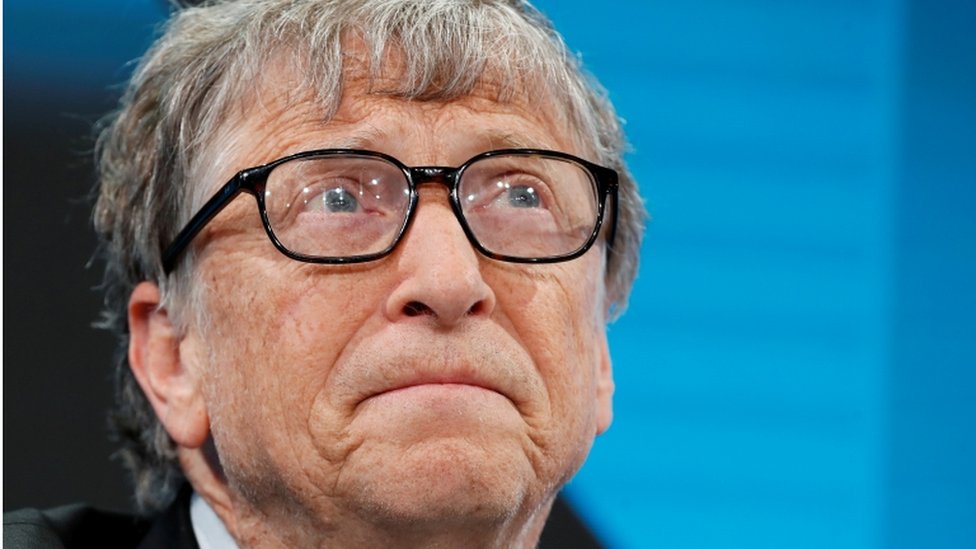
AI will replace doctors, teachers, others in 10 years – Bill Gates
Bill Gates, a co-founder of Microsoft, has claimed that improvements in artificial intelligence (AI) over the next decade may render humans superfluous for the majority of work.
In a recent interview with comedian Jimmy Fallon on NBC’s The Tonight Show in February, the billionaire philanthropist discussed how AI may take over many facets of life and business.
Gates remarked that expertise is currently “rare”, emphasising the continuous reliance on human specialists in industries such as medicine and education.
For example, we continue to rely on highly trained individuals, such as “a great doctor” or “a great teacher”, whose knowledge cannot be simply replaced by AI.
However, “with AI, over the next decade, that will become free, commonplace — great medical advice, great tutoring,” Gates said.
READ ALSO:
- Senate seeks FG’s immediate intervention to slash data prices
- Reno Omokri: Nigeria gives more opportunities than US, Britain, Canada
- Driver remanded for causing Osun varsity students’ death
In other words, Gates believes that the world is entering a new era of “free intelligence”, as he described in a recent interview with Harvard University professor and happiness specialist Arthur Brooks.
According to Gates, this transition will result in rapid breakthroughs in AI-powered technology, making them more accessible and affecting almost every part of our lives.
These breakthroughs will vary from more effective treatments and diagnoses to widely available AI instructors and virtual assistants.
“It’s very profound and even a little bit scary — because it’s happening very quickly, and there is no upper bound,” Gates told Brooks.
The discussion of how humans will fit into an AI-powered future continues.
Some analysts suggest that artificial intelligence will improve human productivity rather than completely replacing labour, hence driving economic growth and creating new jobs.
However, Microsoft AI CEO Mustafa Suleyman cautions that technological improvements in the coming years will disrupt the nature of most occupations across nearly all industries, potentially exerting a “hugely destabilising” influence on the workforce.
AI will replace doctors, teachers, others in 10 years – Bill Gates
International
Poland suspends migrants’ right to apply for asylum
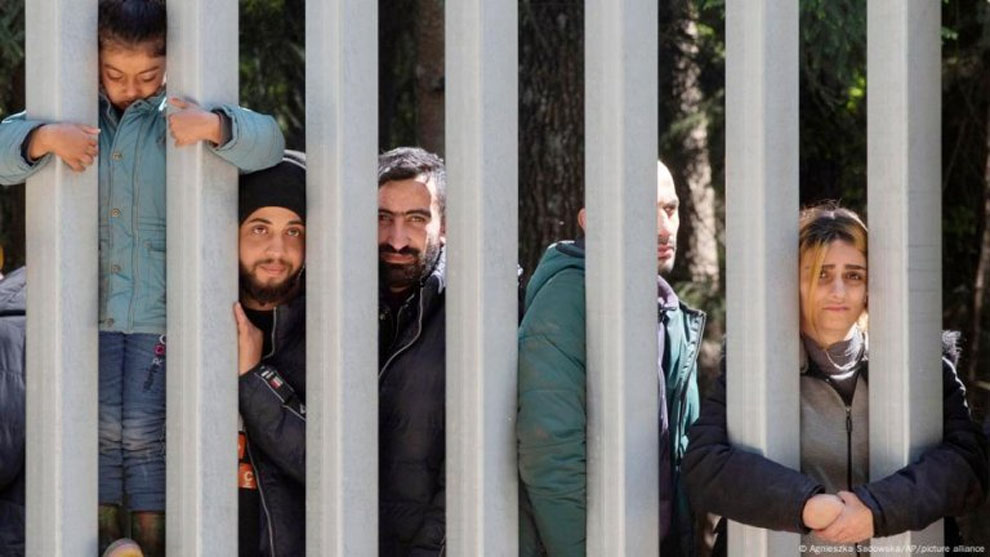
Poland suspends migrants’ right to apply for asylum
Poland has temporarily suspended the right of migrants arriving in Poland via its border with Belarus to apply for asylum.
Prime Minister Donald Tusk announced it would be happening after the controversial bill, which will allow Polish authorities to suspend this right for up to 60 days at a time, was signed into law by President Andrzej Duda.
Tusk had said it would be adopted “without a moment’s delay” while Duda said the changes were needed to strengthen security on the country’s borders.
But the law has been criticized by rights groups including Human Rights Watch, which said the EU should take legal action against Poland if it was implemented.
The group urged the country’s parliament last month to reject the bill, saying it “flies in the face of Poland’s international and EU obligations” and could “effectively completely seal off the Poland-Belarus border, where Polish authorities already engage in unlawful and abusive pushbacks”.
READ ALSO:
- Trump slaps 25% tariffs on car imports to US
- Reps pass bill to strip Vice President, governors, deputies of immunity
- Businessman collapses in court during trial over $578,000 cash seizure
The government said previously the suspension would only be applied temporarily to people who pose a threat to state security, for example large groups of aggressive migrants trying to storm the border.
Exemptions will be made for unaccompanied minors, pregnant women, the elderly or unwell, anyone exposed to “real risk of serious harm” by being returned and citizens of countries accused of conducting the instrumentalization of migration – like Belarus
Tusk has dismissed criticism from human rights groups.
“Nobody is talking about violating human rights, the right to asylum, we are talking about not granting applications to people who illegally cross the border in groups organised by Lukashenko,” he said in October.
Since 2021, Poland, Lithuania, Latvia and Finland have seen a huge increase in the number of people crossing into their countries illegally from Belarus and Russia.
Polish authorities have sent thousands of troops and border guards to police its border with Belarus and built a 5.5-metre-high steel fence along 186 km of the frontier where at times several thousand migrants have been left stranded.
Rights groups estimate more than one hundred people have died on the borders between Belarus and Poland, Lithuania and Latvia since 2021.
EU eastern flank countries and the European Commission have accused the Belarusian and Russian authorities of weaponising migration to create a new route into the EU to destabilize the bloc.
Poland suspends migrants’ right to apply for asylum
BBC
-

 metro1 day ago
metro1 day agoRivers administrator Ibas fires Fubara’s political appointees
-

 metro1 day ago
metro1 day agoJUST-IN: Ex-Oyo gov Ajimobi’s first child Bisola dies At 42
-
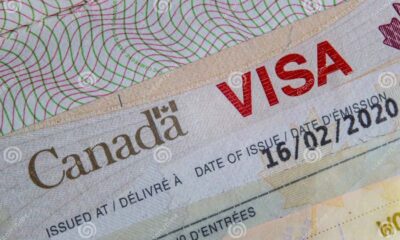
 International3 days ago
International3 days agoCanada removes bonus ranking points for job offers in Express Entry system
-

 metro2 days ago
metro2 days agoHow ritualists, native doctor drugged, murdered underage sisters in PH – Police
-
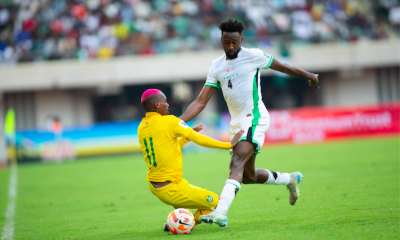
 Sports3 days ago
Sports3 days agoNigeria’s Super Eagles falter in W’Cup qualifiers against Zimbabwe, S’Africa lead, Egypt, Morocco qualify
-

 metro1 day ago
metro1 day agoFG declares public holidays for Eid-el-Fitr
-

 metro3 days ago
metro3 days agoAkpabio has habit of abusing women, says Atiku
-

 Africa1 day ago
Africa1 day agoNiger coup leader sworn in as president for five years





